The Legend of Easter
Download PDF:
https://od.lk/f/MV8zNDEzOTUyMjNf
https://od.lk/fl/MV8xODI0MzMzNl8
Please share this website with all your friends and family members. Thank you, and God bless.
All the Bible verses quoted in this article are from the King James Version, unless otherwise noted.
Deutoronomy 12:28-32
28 Observe and hear all these words which I command thee, that it may go well with thee, and with thy children after thee for ever, when thou doest that which is good and right in the sight of the LORD thy God.
29 When the LORD thy God shall cut off the nations from before thee, whither thou goest to possess them, and thou succeedest them, and dwellest in their land;
30 Take heed to thyself that thou be not snared by following them, after that they be destroyed from before thee; and that thou enquire not after their gods, saying, How did these nations serve their gods? even so will I do likewise.
31 Thou shalt not do so unto the LORD thy God: for every abomination to the LORD, which he hateth, have they done unto their gods; for even their sons and their daughters they have burnt in the fire to their gods.
32 What thing soever I command you, observe to do it: thou shalt not add thereto, nor diminish from it.
The celebration of the Lord’s Resurrection is commonly referred to as “Easter” in English. The term “Easter” is not used in the Bible and is not related to the passion, death, or resurrection of Christ. All Bible scholars acknowledge that the term “Easter” originates from paganism and is the name of a goddess. Therefore, God’s people should not use the term “Easter” to refer to the celebration of the Lord’s Resurrection. In Vietnamese, we have the term “Lễ Phục Sinh” (Resurrection Festival), which is evocative and full of meaning.
The Bible does not teach that God’s people must observe the celebration of the Lord’s Resurrection. The apostles of the Lord and the early Church did not celebrate the Lord’s Resurrection. There is no evidence that Easter was observed in the New Testament or mentioned in the manuscripts of the early apostles. The early Christians continued to observe the Jewish festivals but in a new spirit, as a remembrance of the events those festivals foreshadowed. Meanwhile, non-Jewish Christians, unaffected by Jewish traditions, associated the first day of the week with the event of the Lord’s resurrection and the preceding Friday with the commemoration of the crucifixion, regardless of the date in the month. It was not until 325 AD that the Roman Emperor Constantine convened the Council of Nicaea in the city of Nicaea, and the Council decreed that from then on, the entire Roman Empire should celebrate Easter on the first Sunday after the first full moon following the vernal equinox (the start of spring) [1].
The Lord Jesus only instituted two ordinances for the Church: Baptism and the Lord’s Supper. In the writer’s personal opinion, if we wish to commemorate the birth or resurrection of the Lord, it is believed that the Lord does not forbid us as long as we do not commercialize or mix pagan idol worship practices into our celebrations.
In Old English, “Easter” means “wind from the east.” According to the Pictorial Encyclopedia of the Bible published by Zondervan, the original term Easter is Eastre, the name of the spring goddess of the Teutonic peoples (including the Germans, English, and Norwegians) [2].
According to pagan sources, Eastre was one of the deities worshipped by the Norwegians and later by other peoples in Europe. Every year, at the beginning of spring, around April, during the full moon, the Norwegians held a festival to honor Eastre, which is why Eastre was considered the Goddess of Spring and the Goddess of the Moon. However, Eastre’s primary role was as a fertility goddess (earth goddess) responsible for revitalizing the land after the cold winter, causing plants to sprout and grow, providing food for both animals and humans. Eastre was also seen as the deity who blessed the fertility of all living things.
Legend has it that Eastre often appeared in the form of a hare (symbolizing rapid and abundant reproduction), which is why in the festival dedicated to Eastre, a female hare was used as a symbol for the goddess. The offerings included hard-boiled eggs, representing the cosmic egg of creation and the rebirth of all things, along with early-season fruits. Eastre is the origin of the “Easter Bunny” and “Easter Eggs.” The name Eastre means “from the east,” so Eastre was also regarded as the Goddess of Dawn. [3]
1. Statue of the Goddess Eastre
http://collections.glasgowmuseums.com/media/S_338_01_S.jpg
2. Drawing of the Goddess Eastre
http://www.thaliatook.com/pix/eostre.jpg
 3. Statue of the Goddess Ishtar
3. Statue of the Goddess Ishtar
http://www.goddessaday.com/images/Ishtar-1.jpg
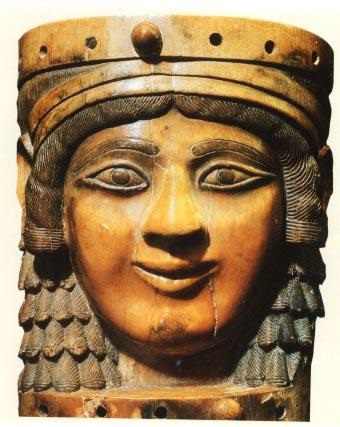
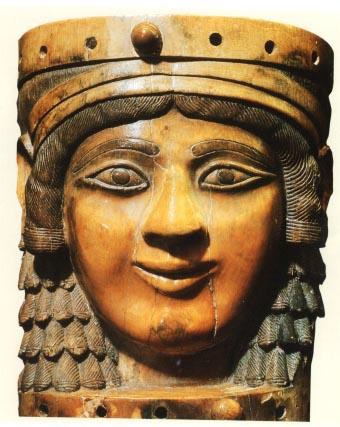 4. The Ishtar Gate of Babylon, displayed at the Nebuchadnezzar Museum in Berlin, Germany.
4. The Ishtar Gate of Babylon, displayed at the Nebuchadnezzar Museum in Berlin, Germany.
http://upload.wikimedia.org/wikipedia/commons/thumb/e/e3/Ishtar_Gate_at_Berlin_Museum.jpg
5. Statue of the Goddess Astarte created around 600 BC
http://www.chrestonart.com/ppimages/l_1119.jpg
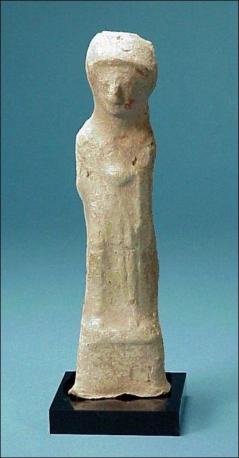
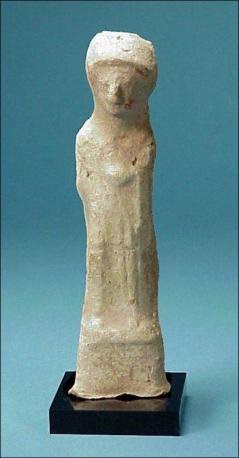 6. Statue of the Goddess Astarte created around 1800 BC
6. Statue of the Goddess Astarte created around 1800 BC
http://realhistoryww.com/world_history/ancient/Images_Canaan/Astarte_2.jpg
 However, according to W.E. Vine’s Vine’s Complete Expository Dictionary of Old and New Testament Words, Easter is actually the Babylonian goddess Astarte, the Queen of Heaven mentioned in Jeremiah 7:18; 44:17-19, 25; 1 Kings 11:5, 33; 2 Kings 23:13-15 [4].
However, according to W.E. Vine’s Vine’s Complete Expository Dictionary of Old and New Testament Words, Easter is actually the Babylonian goddess Astarte, the Queen of Heaven mentioned in Jeremiah 7:18; 44:17-19, 25; 1 Kings 11:5, 33; 2 Kings 23:13-15 [4].
The Catholic Encyclopedia combines the perspectives of both the Encyclopaedia Britannica and W.E. Vine to define Easter as follows: “Easter: An English term, according to Bede (an eighth-century monk), related to Eastre, the goddess of dawn and spring of the Teutonic peoples. Eastre was the name in ancient Europe for the same goddess worshipped by the Babylonians, Astarte, or Ishtar, the fertility goddess, for whom a major festival was celebrated in the spring of the year.” [5]
Through three different sources – secular sources, Catholic Church sources, and Protestant scholarly sources – we can clearly see that the celebration of the Lord’s Resurrection has been mythologized and paganized into the festival of Easter!
As God’s people, according to the Word of God, we have a duty to meditate on it day and night, so that you may be careful to do everything written in it (Joshua 1:8). We cannot follow the Church’s traditions and worship the Lord using pagan rites, which the Lord has strongly condemned in the Bible (Deuteronomy 12:28-32). Those who teach God’s people to worship the Lord using pagan rites will be held accountable before the Lord, but those who disregard the Word of God to follow Church traditions will also bear responsibility before the Lord.
Each believer is a holy priest of God (1 Peter 2:9; Revelation 1:6) sanctified by the blood of Christ. Therefore, let us keep ourselves holy each day as we present ourselves and worship God.
We call upon all God’s people to abandon calling the celebration of the Lord’s Resurrection “Easter,” to forsake the customs of decorating the holiday with images of hares and eggs, to refrain from allowing our children to participate in Easter egg hunts, and to give up the greeting “Happy Easter,” which deeply signifies “Rejoice in the Goddess Astarte.” Instead, let us use the greeting: “Happy Resurrection Day!”
Additionally, the Lord’s Resurrection Day is not always on Sunday but is three days after Passover. We will discuss this in another article: “The Day of the Lord’s Death and the Day of the Lord’s Resurrection.” Therefore, if we truly wish to commemorate the Lord’s Passion and Resurrection, we should hold the Passion Service on the evening of Passover, the 14th of Nisan, and the Resurrection Service on the night of the 17th or the morning of the 18th of Nisan according to the Jewish Calendar.
Timothy Christian Huynh
Priscilla Christian Huynh
04/05/2007
Notes:
[1] The Encyclopaedia Britannica, “Easter,” 11th edition, trang 828-829
[2] Merrill C. Tenney, General Editor, Pictorial Encyclopedia of the Bible, Zondervan (1976), Volum 2, page 180
[3] http://www.pagannews.com/cgi-bin/gods3.pl?Eastre
[4] W.E. Vine, Vine’s Complete Expository Dictionary of Old and New Testament Words, “Easter”, Thomas Nelson Publishers (1996), page 192
[5] The Catholic Encyclopedia, “Easter”, (1909) volume 5, page 224-227


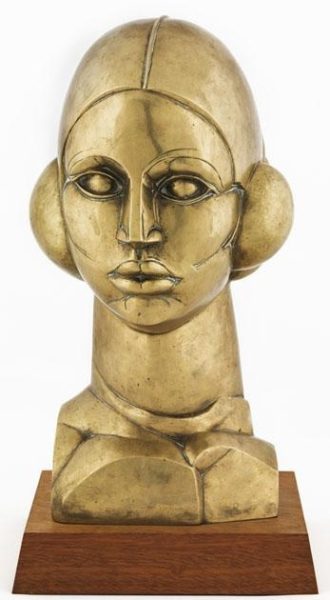
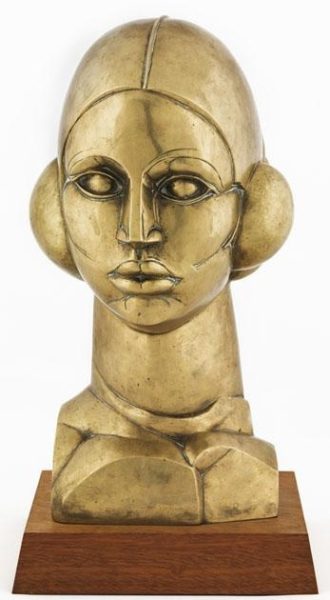










 Users Today : 47
Users Today : 47 Users Yesterday : 47
Users Yesterday : 47 Users This Year : 9830
Users This Year : 9830 Total Users : 57200
Total Users : 57200 Views Today : 58
Views Today : 58 Total views : 102300
Total views : 102300 Who's Online : 0
Who's Online : 0